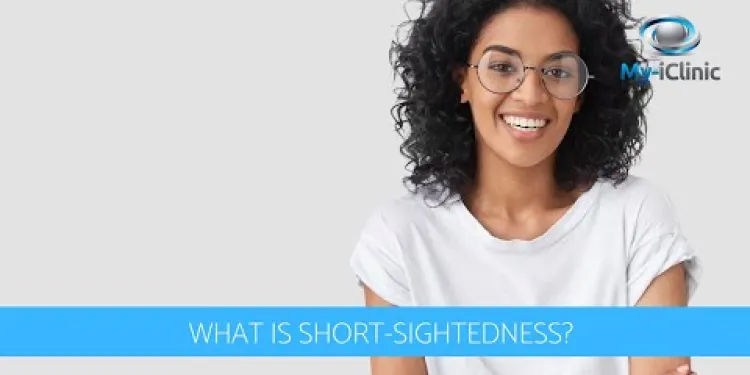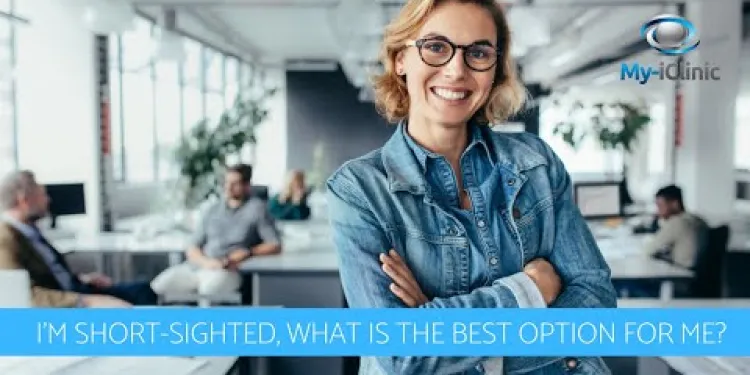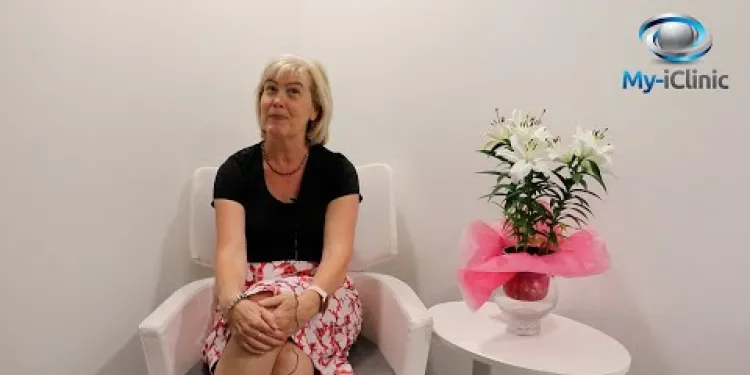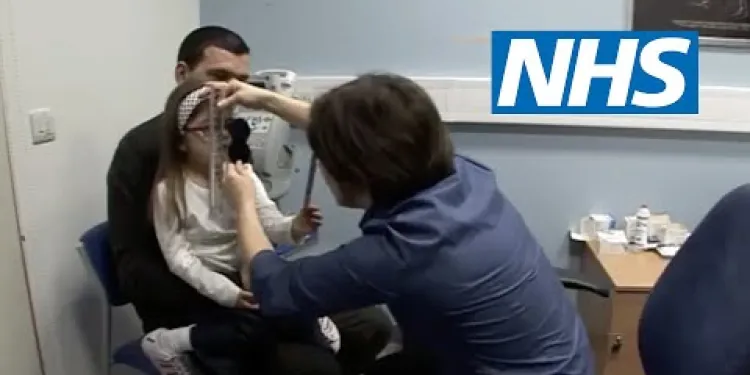Find Help
More Items From Ergsy search
I'm Short-sighted, What Is The Best Option For Me?
Understanding Short-sightedness
Short-sightedness, or myopia, is a common eye condition where distant objects appear blurred while close items are seen clearly. If you are short-sighted, there are several options available to you, depending on your lifestyle, preferences, and budget.
Glasses
One of the most common and straightforward options is wearing glasses. They are easy to use and come in a variety of styles to suit your personal taste. Many high street opticians across the UK offer a wide range of frames, and regular eye tests are often covered under the NHS for eligible groups.
Contact Lenses
For those who find glasses cumbersome, contact lenses may be a better choice. They provide a wider field of vision and do not fog up or get splattered by rain. Options range from daily disposables to monthly lenses. Contact lenses do require proper hygiene and handling, as well as regular check-ups to ensure eye health.
Laser Eye Surgery
Laser eye surgery is a more permanent solution for short-sightedness. Procedures like LASIK or PRK reshape the cornea to correct vision. It is vital to consult with a qualified ophthalmologist to determine your suitability for surgery. While it can be expensive, many clinics offer financing options to make this treatment more accessible.
Orthokeratology
Orthokeratology, or corneal reshaping therapy, involves wearing special contact lenses overnight to temporarily correct myopia. This non-surgical option can be beneficial for people unable to undergo laser eye surgery. It is advisable to get this treatment from an eye specialist experienced in fitting ortho-k lenses.
NHS Support and Guidance
In the UK, the NHS provides support for managing short-sightedness through free eye tests for certain groups, discounts on glasses, and access to treatments and consultations. It is recommended to visit your local optician to discuss the best options according to your specific needs and circumstances.
I'm Short-sighted, What Should I Do?
What is Short-sightedness?
Short-sightedness, also called myopia, means you can see things up close, but far away things look blurry. If you are short-sighted, there are different things you can try to help you see better.
Glasses
Many people wear glasses to help them see clearly. Glasses are easy to use and come in many styles. You can find glasses in shops all over the UK. Some people can get free eye tests from the NHS.
Contact Lenses
If you don't like glasses, you can try contact lenses. Contact lenses are small and fit in your eyes. They help you see better without fogging up or getting wet in the rain. You have to keep them clean and go to the eye doctor to check your eyes.
Laser Eye Surgery
Laser eye surgery is a way to fix short-sightedness for a long time. A special doctor uses a laser to help you see better. It costs a lot, but some clinics let you pay in small parts. Talk to a doctor to see if surgery is right for you.
Orthokeratology
Orthokeratology is a big word for wearing special lenses at night. These lenses help you see better in the day. It is not surgery, so it's good for people who can't have laser eye surgery. You need a special eye doctor for this.
Help from the NHS
In the UK, the NHS helps people with short-sightedness. Some can get free eye tests or discounts on glasses. It is a good idea to visit your eye doctor to talk about what is best for you.
Frequently Asked Questions
What does it mean to be short-sighted?
Short-sightedness, also known as myopia, is a common eye condition where distant objects appear blurry while close objects can be seen clearly.
What are the common symptoms of short-sightedness?
The main symptom of short-sightedness is having difficulty seeing distant objects clearly, such as road signs, which may appear blurry.
Can short-sightedness be corrected with glasses?
Yes, glasses with concave lenses can correct short-sightedness by refocusing light directly onto the retina, making distant objects clearer.
Are contact lenses a good option for someone who is short-sighted?
Yes, contact lenses are a popular choice for correcting short-sightedness as they offer a wider field of vision and more freedom of movement compared to glasses.
Is laser eye surgery a viable option for short-sighted individuals?
Yes, laser eye surgery, such as LASIK, is an effective and permanent solution to correct short-sightedness by reshaping the cornea.
How do I know if I'm suitable for laser eye surgery?
Eligibility for laser eye surgery depends on various factors including your age, eye health, prescription stability, and corneal thickness. A thorough consultation with an eye specialist is necessary.
Are there any non-surgical options for treating short-sightedness?
Yes, in addition to glasses and contact lenses, orthokeratology (ortho-k) lenses can be worn overnight to temporarily reshape the cornea and improve vision during the day.
What are the advantages of ortho-k lenses over regular contact lenses?
Ortho-k lenses are worn overnight and can provide clear vision during the day without the need for glasses or contact lenses, making them convenient for active lifestyles.
How can I prevent my short-sightedness from getting worse?
Ways to slow the progression of short-sightedness include regular eye exams, proper lighting while reading, reducing screen time, and wearing prescribed corrective lenses.
Are there any risks associated with wearing contact lenses for short-sightedness?
While generally safe, contact lenses can potentially lead to eye infections or discomfort if not used and cared for properly. Always follow your optometrist's guidelines.
Do lifestyle changes have an impact on managing short-sightedness?
Yes, maintaining good eye health through a balanced diet, regular breaks from screen time, and spending time outdoors can help manage the condition.
What is the long-term outlook for someone who is short-sighted?
Most people with short-sightedness can achieve good vision with corrective lenses or surgical treatments. However, regular eye check-ups are essential to monitor and manage any changes.
Can children also develop short-sightedness?
Yes, short-sightedness often develops in children and teenagers as their eyes grow. It's important to monitor their vision and consult an optometrist if issues arise.
How often should I have an eye exam if I am short-sighted?
Regular eye exams are recommended every two years or more frequently if advised by your optometrist, to ensure your prescription remains accurate and to monitor eye health.
Are there any new treatments or research developments for short-sightedness?
Yes, ongoing research is exploring various treatments, including new surgical techniques, medications, and advanced contact lenses to better manage and correct short-sightedness.
What does it mean to be short-sighted?
Being short-sighted means it's hard to see things that are far away. But you can see things up close just fine. For example, you can read a book, but you might not see the board in your classroom very well.
Some people wear glasses or contact lenses to help them see better far away.
It can help to talk to an eye doctor if you have trouble seeing. They can check your eyes and tell you what might help.
Short-sightedness is another way to say myopia. It is a common problem with your eyes. It means things far away look blurry, but things close up look clear.
Here are some helpful tips:
- Use glasses or contact lenses to see better.
- Visit an eye doctor for regular check-ups.
- Take breaks if you use screens a lot.
- Try eye exercises to keep your eyes healthy.
What happens when you are short-sighted?
Here are some signs if you are short-sighted (this is also called near-sighted):
- You can see things close to you, but things far away look blurry.
- You might have to squint your eyes to see things far away.
- Your eyes may feel tired or sore.
- You might get headaches from trying to see things far away.
If you have these signs, it is a good idea to visit an eye doctor. They can help you see clearly.
Here are some things that can help:
- Wearing glasses or contact lenses.
- Sitting closer to a board in school or at meetings.
The main sign of short-sightedness is having trouble seeing things that are far away, like road signs. These things might look blurry.
Can glasses help you see better if you are short-sighted?
Yes, glasses with lenses that curve inwards can help people see far away things clearly. They bend the light so it lands right on the back of the eye.
Tools like audiobooks or e-readers with voice features can help if reading is hard. You can also use apps that read text out loud. These tools can make learning easier and more fun!
Are contact lenses good for people who can't see far?
Contact lenses might help if you cannot see far away. If you need help, ask a grown-up or an eye doctor. They can tell you what is best for your eyes. You can also use glasses if contact lenses are not right for you.
Here are some things to remember:
- Contact lenses sit on your eyes. You have to take care of them.
- Keep your contact lenses clean.
- Tell someone if your eyes hurt or feel funny.
Tools that can help:
- A grown-up can help you put contacts in.
- An eye doctor can show you how to use them safely.
Yes, lots of people like to use contact lenses to help them see better if they are short-sighted. Contact lenses let you see more around you and move more easily than glasses do.
Can people who can't see far away have laser eye surgery?
Laser eye surgery can help some people see better.
If you can't see far away very well, laser surgery might help you.
Talk to an eye doctor to find out if it's good for you.
They can answer your questions and help you decide.
Using big letters and short sentences can help you read this better.
It's okay to ask someone to help you read too.
Yes, laser eye surgery, like LASIK, can help fix short-sightedness. It changes the shape of your eye so you can see better. It works well and lasts a long time.
If reading is hard, you can try:
- Listening to audiobooks
- Using text-to-speech apps
- Asking someone to read with you
How can I tell if laser eye surgery is right for me?
Laser eye surgery helps people see better without glasses.
Here is how you can find out if it might be good for you:
- Talk to an eye doctor. They can help you decide.
- Think about how healthy your eyes are. The doctor will check this too.
- If your eyes have stopped changing, it may be a good time.
It is important to ask questions and make sure you feel okay with the idea. You can use helpful tools like talking to a friend or family member to understand better.
You can have laser eye surgery if you meet certain conditions. These include how old you are, the health of your eyes, if your vision has stayed the same for a while, and the thickness of your eye's surface.
You need to talk to an eye doctor to find out if you can have the surgery.
If reading is hard, you can ask someone to read this to you or use a program that reads aloud. This can help you understand better.
Can you fix short-sightedness without surgery?
Yes, you can make short-sightedness better without surgery. Here are some ways:
- Glasses: Wear glasses to help you see clearly. Go to an eye doctor to find the right pair.
- Contact Lenses: These are like tiny glasses that you put on your eyes. Make sure you learn how to use them safely.
- Eye Exercises: Some doctors say doing eye exercises can help. Ask your eye doctor to show you how.
- Special Contacts: Some contacts can reshape your eyes while you sleep. Ask your doctor about these.
If you want advice, ask an eye doctor. They can help you choose what is best for you.
Yes, there are different ways to help you see better. You can wear glasses or contact lenses. There are also special lenses called ortho-k lenses. You wear these while you sleep. They change the shape of your eye so you can see better during the day.
Why are ortho-k lenses better than regular contact lenses?
Ortho-k lenses have some good points:
- They can help you see clearly during the day without needing glasses.
- Unlike regular lenses, you wear ortho-k lenses at night when sleeping.
- They gently change the shape of your eye to help you see better.
- When you wake up, you take them out and can see well all day.
- This can be great for kids who play sports.
Some helpful tips:
- Ask an eye doctor to explain how ortho-k works.
- Let a grown-up help you put the lenses in and take them out.
- Use a calendar or chart to remember to wear them every night.
You wear Ortho-k lenses when you sleep. They help you see clearly in the day. You won't need glasses or regular contacts. This is great if you move around a lot and don't want glasses getting in the way.
How can I stop my eyesight from getting worse?
Here are some easy ways to help your eyes:
- Take a break from screens. Look away every 20 minutes.
- Play outside in the sunlight.
- Eat healthy food like carrots and green veggies.
- Go to the eye doctor regularly.
- Wear the right glasses if you need them.
Ask grown-ups or teachers for help if you need it! They can remind you to take breaks and help you go to the eye doctor.
Here are ways to help slow down getting short-sighted:
- Have eye check-ups regularly.
- Use good lighting when reading.
- Spend less time looking at screens.
- Wear glasses if the doctor says you need them.
Is It Safe to Wear Contact Lenses if You Can't See Far?
Wearing contact lenses can help you see better if you have trouble seeing far away. But it's important to use them safely.
Here are some things to remember:
- Always wash your hands before touching your lenses.
- Follow the instructions your eye doctor gives you.
- If your eyes hurt or feel uncomfortable, tell an adult or your eye doctor.
Using contact lenses the right way can help keep your eyes healthy.
If you need help, ask an adult or use tools like glasses instead.
Contact lenses are usually safe, but you can get an eye infection or feel uncomfortable if you don't use and clean them the right way. Always listen to what your eye doctor says.
Can changing how we live help with seeing things far away?
Sometimes it's hard to see things that are far away. This is called short-sightedness.
Changing some things in our daily life might help us see better. Here are some ideas:
- Spend time outside in the sunlight.
- Limit screen time on phones and tablets.
- Take breaks when reading or using the computer. Look at something far away for a while.
- Eat healthy foods that are good for your eyes like carrots and fish.
Remember, it's important to ask an eye doctor for advice if you're having trouble seeing things far away.
Yes, you can keep your eyes healthy by eating good food, taking breaks from screens, and playing outside.
What will happen in the future for someone who can't see far away?
If you can't see far away, this is called being short-sighted. It means you need help to see things that are far from you.
Most of the time, being short-sighted does not get much worse if you wear glasses or contact lenses.
Doctors can help you know what to do if your eyes change. Regular check-ups with the eye doctor are important.
If you need help reading, you can use large print books or listen to audiobooks.
Talking to a teacher or a helper can also make reading easier.
If you are short-sighted, glasses or contact lenses can help you see better. Sometimes, doctors can do surgery to fix your eyes, too. It is important to visit the eye doctor often. They can see if your eyes change and help you take care of them.
Can kids also get short-sighted?
Yes, kids can become short-sighted. This means they see things that are far away as blurry.
Here are some tips to help:
- Eye check-ups: Visit an eye doctor to keep track of eye health.
- Take breaks: Rest eyes after reading or using screens for a while.
- Good light: Make sure rooms are bright when doing activities.
Yes, kids and teenagers can become short-sighted as they grow. It is important to check their eyes and see an eye doctor if there are problems.
How often should I have my eyes checked if I am short-sighted?
If you can't see things far away, you are short-sighted. It is important to get your eyes checked.
Go for an eye check-up every year. Ask your eye doctor for advice. They can help you see better.
Bring your glasses or contact lenses to the check-up. It's good to tell the doctor if you have any problems seeing clearly.
It is a good idea to have an eye test every two years. If your eye doctor says you need them more often, listen to them. These tests make sure you have the right glasses and check if your eyes are healthy.
Are there new ways to help with short-sightedness?
Scientists are looking for new ways to help people who have trouble seeing far away. Talk to your eye doctor to learn about the newest ideas.
Some tools that help:
- Glasses or contact lenses
- Special eye drops
- Exercises for your eyes
Ask a friend or family member to help you read more about it!
Yes, scientists are looking for new ways to help people see better. They are trying new surgeries, medicines, and special contact lenses. These are to help fix short-sightedness.
Useful Links
This website offers general information and is not a substitute for professional advice.
Always seek guidance from qualified professionals.
If you have any medical concerns or need urgent help, contact a healthcare professional or emergency services immediately.
Some of this content was generated with AI assistance. We’ve done our best to keep it accurate, helpful, and human-friendly.
- Ergsy carfully checks the information in the videos we provide here.
- Videos shown by Youtube after a video has completed, have NOT been reviewed by ERGSY.
- To view, click the arrow in centre of video.
- Most of the videos you find here will have subtitles and/or closed captions available.
- You may need to turn these on, and choose your preferred language.
- Go to the video you'd like to watch.
- If closed captions (CC) are available, settings will be visible on the bottom right of the video player.
- To turn on Captions, click settings .
- To turn off Captions, click settings again.






